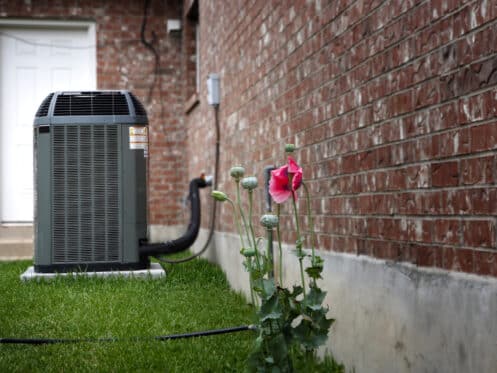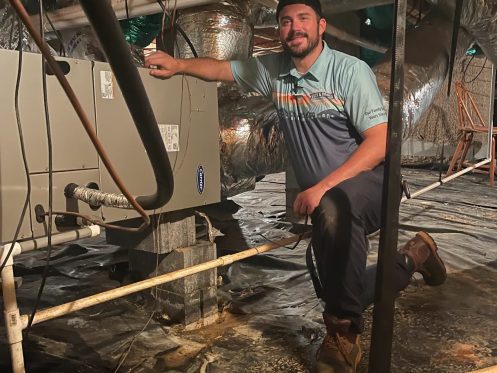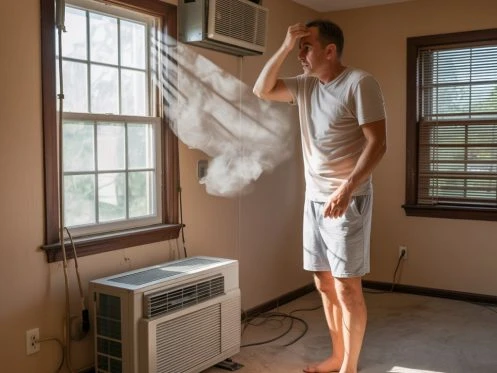Serving Greenville & Surrounding Areas
Should I Repair Or Replace My Hvac System?

The HVAC system is a core component of any comfortable living space. It maintains your indoor temperature to the level that you want regardless of the outside conditions, cleans your air, and controls humidity levels. For it to offer maximum comfort, the system must be efficient and well-maintained. Unfortunately, like any mechanical equipment, an HVAC system will eventually need repairs or even replacements. If you are experiencing issues with your unit, here’s how you can decide whether to fix it or get a new one.
When It Is Appropriate to Repair
A repair is often a strategic choice if your system has minor malfunctions. Issues like clogged filters, faulty thermostats, leaking ducts, or a blown fuse can easily be fixed by a trained technician without costing you much.
Also, if your system is still relatively new, it still has a lot of life, so it would be in your best interest to repair rather than replace it. Take advantage of your warranty if it is still valid to avoid unnecessary expenses.
Another scenario where a repair would be appropriate is if you have budgetary constraints. The upfront cost of getting a new system can be quite high, and if you are not ready to make such a significant investment, repairing your current unit is the best option.
Lastly, if you feel attached to your current system and are satisfied with its performance, there is no need to replace it. As long as the repairs are manageable and keep your system running efficiently, fixing it is a good choice.
When It Is Time to Replace
Despite your efforts to maintain your HVAC system, there will come a time when it is no longer cost-effective or practical to keep repairing it. The first sign is the frequency of repairs. If you find yourself calling a technician every few months, it may be time to consider getting a new system.
Secondly, if your energy costs are continually rising, it may be a sign that your system is no longer energy-efficient. Newer models are designed to be more energy-efficient, saving you money on your utility bills in the long run.
On the same note, if your unit is older than 15 years, it is likely no longer performing at its optimal level. With advances in technology, newer models can provide better air quality and more precise temperature control, making them worth the investment. Besides, it’s difficult to find spare parts for older systems, making repairs costlier and more time-consuming.
Lastly, if you are moving out or want to sell your home, it may be worth replacing your HVAC system. The new home that you are going to has different needs and requirements, so it’s better to upgrade your system than try to make do with what you already have. A contractor must size the unit correctly to meet the needs of your new home, ensuring that it runs efficiently and saves you money in the long run.
On the other hand, if you are selling your home, a new system can also increase its value and make it more appealing to potential buyers. It shows that you have taken good care of your home and are providing them with a reliable HVAC system.
Finding the Right Contractor
Whether you are replacing or repairing your HVAC system, finding the right contractor is crucial. A reputable and experienced contractor will ensure that the job is done correctly and efficiently. Look for the following five qualities when choosing a contractor.
The first is licensing and experience. Ensure the contractor is licensed, insured, and has plenty of experience working with the type of system you’re interested in or currently have. Don’t be afraid to ask for proof of qualifications and inquire about past projects related to your needs.
Secondly, check their reputation. Look for reviews and testimonials from past customers to get an idea of the quality of work they provide. You can also ask friends or family members for recommendations on contractors they have used in the past.
Thirdly, consider their pricing and payment options. It’s essential to find a contractor that fits within your budget but be wary of choosing someone solely based on low prices. Strike a balance between affordability and quality work. Additionally, inquire about payment options such as financing or installment plans.
Fourthly, communication is key. A good HVAC contractor should communicate with you clearly and effectively throughout the entire process, from initial consultation to completion of the job. They should also be transparent about any potential issues or extra costs that may arise during the project.
Finally, choose someone who offers warranties and ongoing maintenance services. A reliable contractor should provide warranties for their work to ensure that any issues that may arise are taken care of without additional costs on your part. They should also offer regular maintenance services to keep your HVAC system functioning efficiently.
Contact Us
For the best HVAC repair or installation services, call Tuck & Howell, Inc. today. Our team of qualified and experienced contractors will ensure that your HVAC system is running smoothly and efficiently. We offer just about every service you may need, including indoor air quality solutions, regular maintenance, and plumbing services. Contact us now to schedule an appointment and experience high-quality HVAC services in Taylors, SC.
Services We Offer Include:
- AC Company
- AC Repair
- AC Installation
- AC Maintenance
- Plumbing Repair




